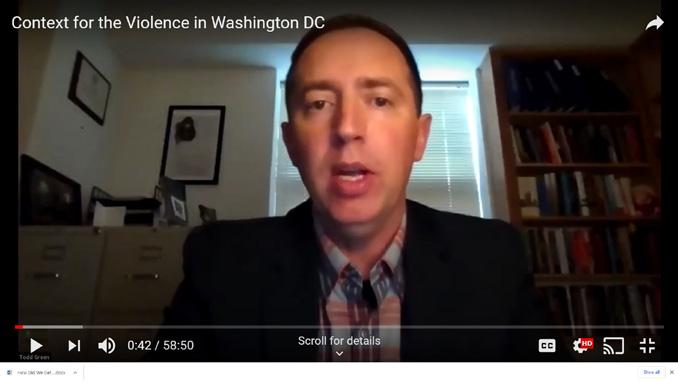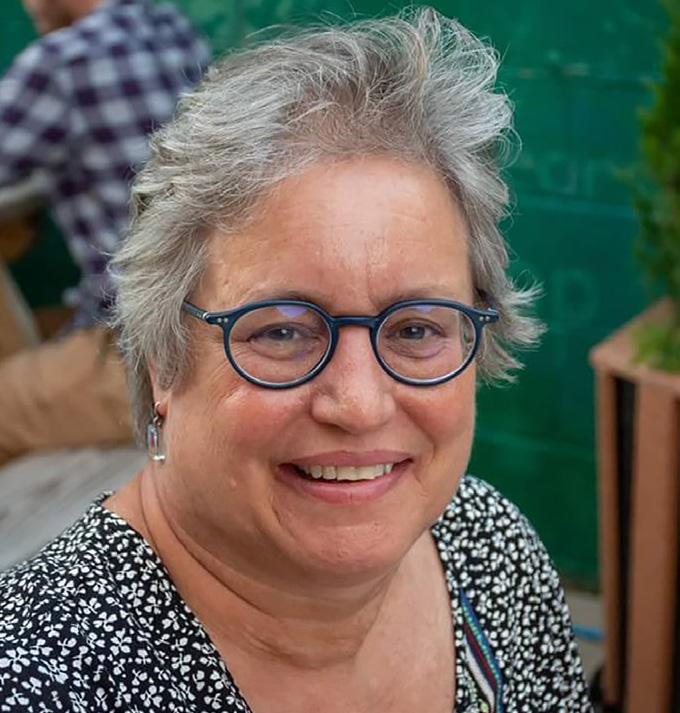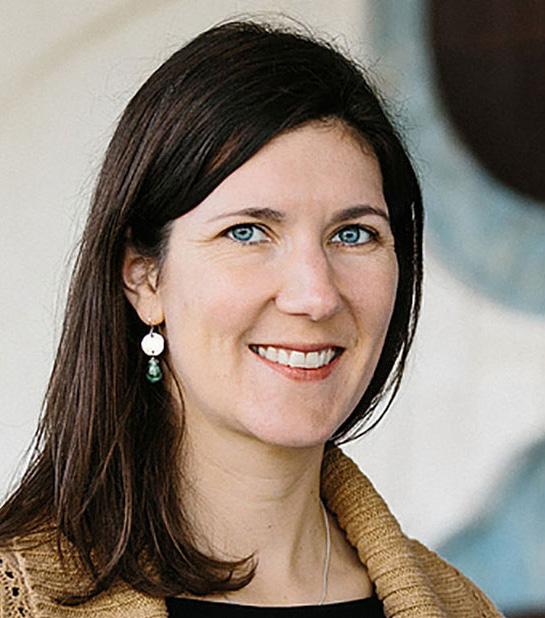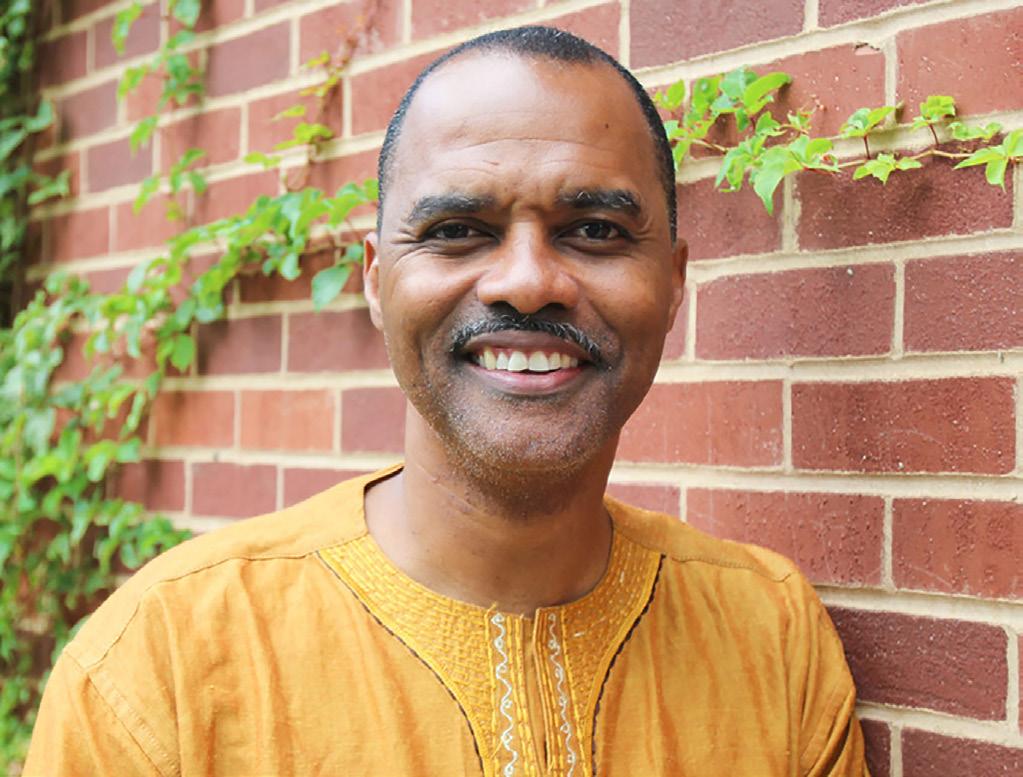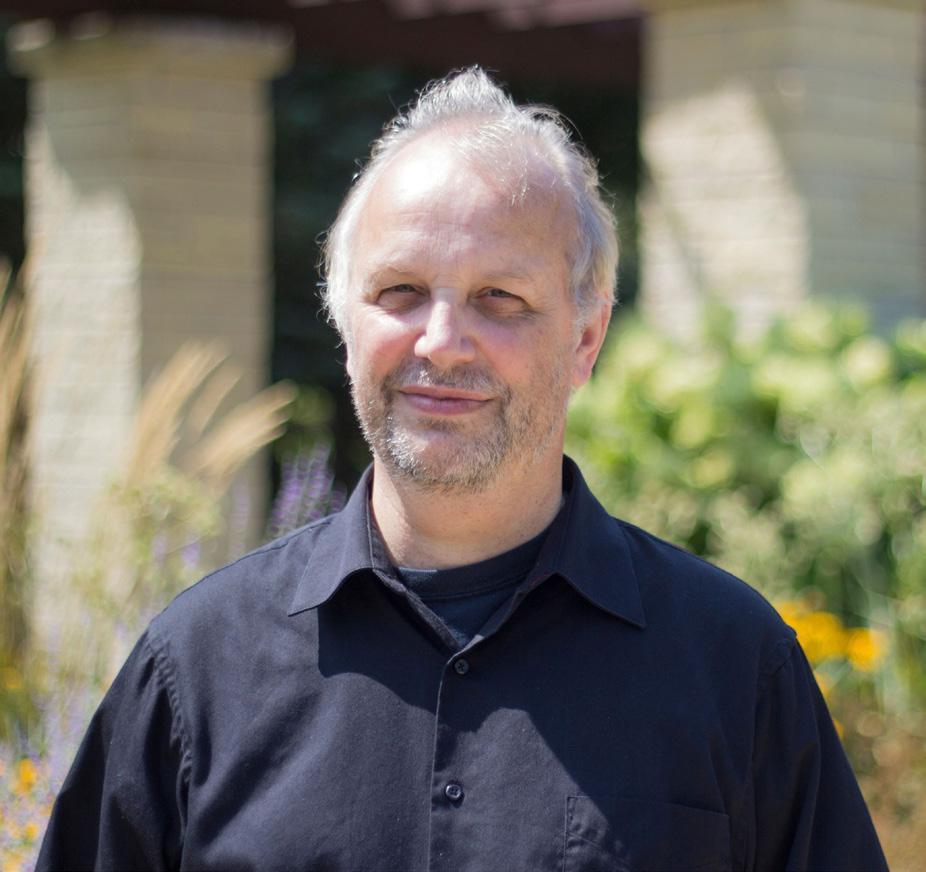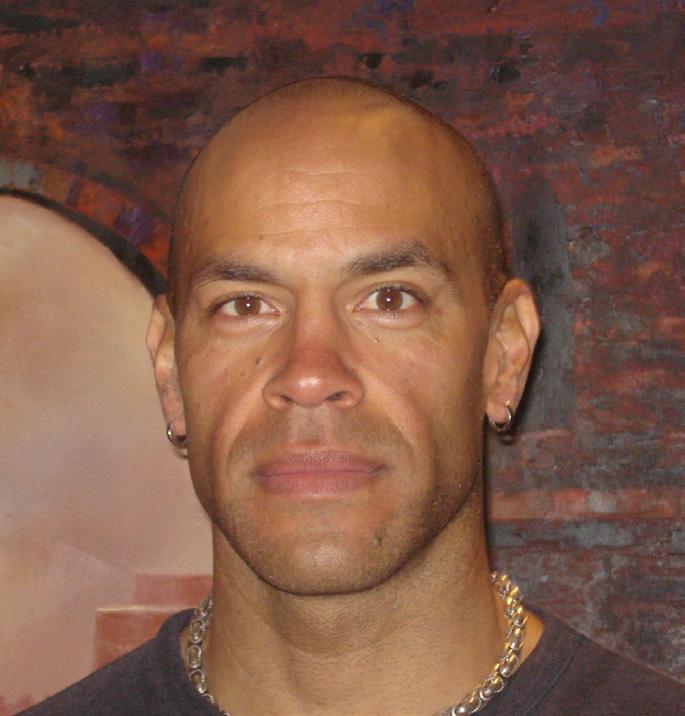
29 minute read
Reflections on a Professional Life Nancy Jones
from Agora Spring 2021
Reflections on a Professional Life
by NANCY JONES '69
Editor’s note: The following talk was given by Nancy Jones ('69), Phi Beta Kappa alumna inductee, to Luther College students initiated into Phi Beta Kappa on April 25, 2021.
It’s a pleasure to be with you young people today, and other members of the broader Luther community, on the occasion of our induction into Luther’s chapter of Phi Beta Kappa. I am quite honored to be joining you as we become members of this illustrious honor society, however many years separate us as Luther students. I graduated from the college in 1969, 52 years ago this spring. Much has changed in the world since then, of course. Back in the late ’60s, there were no personal computers or cell phones or internet or Google translate or text messages, much less abbreviations like LOL, TLDR or IMHO. Items in grocery stores did not include bar codes to be scanned, microwave ovens would not become mainstream for another five years, and the Sony Walkman was still a decade away. The world would not experience the first ground-breaking Star Wars movie for another eight years, nor begin playing Pacman and Tetris until the 1980s, with Pokeman and Super Smash Brothers not arriving on the scene until the late 1990s, and Call of Duty somewhat later still. (My sons, Sven and Bjorn, would be so proud of their mother for even knowing the names of any video games.) Here on campus, back in 1969, firstyear students—at that time referred to as freshmen—wore beanies for the first weeks of their fall semester, to distinguish them from everyone else (as if their looks of occasional bewilderment didn’t already give that away). Young women had “hours,” the times you were required to be back in the dorm on given nights—10:00 p.m. week nights, 11:00 on weekends—but young Nancy Jones at the Phi Beta Kappa reception with professors emeriti Will Bunge and Harland Nelson.
men did not. As one of my professors explained this discrepancy, “If the women are back in their dorms, there’s no reason for the men not to be back in theirs.” We women also had “lights out,” 30 minutes after we were to be in our rooms. Many of us used up lots of flashlight batteries that year, studying late under the covers so none of the RAs could detect any light coming through the space at the bottom of the door. If you needed to call home, you could wait your turn at the one phone for outgoing calls near the front desk in whatever dorm you lived, and that’s the phone your parents and friends called when they wanted to reach you as well. When you went to the library, you did not go to the spacious Preus Library, which opened the fall after I graduated, but you went to cozy Koren where I spent many an evening in the stacks. The CFL didn’t exist back then, so we had chapel and church services and Messiah rehearsals and performances, and other musical events, in the Field House, as I recall. So, a lot has changed here since I graduated, lo, these many years ago. But some things have not. The Oneota Valley seen from the Union is as glorious as ever. Faculty members continue to produce exciting research, as the pages of Agora regularly attest; students—at least prepandemic and surely in months ahead— are challenged to branch out through international programs in countries around the world. And the commitment to living responsible lives seems deeply rooted, whether in the face of climate change or in reaction to racial injustices. So, too, is the commitment of faculty and staff to the lives of individual students, their desire to provide them with an education for life and to model the truth that the life of the mind and the life of faith can work hand in hand. I could give you many examples of such commitment to me on the part of Luther faculty and staff members, but I’ll mention only one this afternoon. When I was a senior, I found myself walking one afternoon in front of Main—where the English Department was housed
and many of my classes were held—not much has changed there! Professor Mary Lou Mohr, dear Mary Lou, who would be instrumental in the founding of Luther’s Phi Beta Kappa chapter in 1983, was also walking nearby and made a point of coming over to me. By then she had heard that I had been accepted into the M.A.T. program at Brown University, where I’d get a degree that would qualify me to teach junior high or high school English in the public schools. She jumped right to her point. “Nancy, I think you should consider working towards a Ph.D., so you could teach at the college level.” While it’s not at all unusual today for young women to hold such goals, it wasn’t all that common among my circle of friends at Luther in 1969. I remember feeling honored that Mary Lou felt I was capable of aiming that high, though it would be a number of years before I took her up on the implied challenge, and longer yet before I ended up at the front of college and professional school classrooms. After getting my degree at Brown, I did what countless other young people were doing in those days. I headed off to see the world, or at least Western Europe. I bought a backpack to carry everything I’d need for three months, purchased travelers checks to cash along the way (If you want to know what those were, most anyone over 50 or 60 could explain them to you), told my family and friends which American Express offices I’d be visiting over the coming months where I’d be able to pick up any mail they sent me (remember, there were no smart phones for keeping in touch), bought a Eurail Pass that would allow me to board virtually any train at a moment’s notice once I got to Europe, and bought a round-trip ticket to Amsterdam on Iceland Air, following in the footsteps of thousands of other college-aged students and recent graduates with Frommer’s Europe on $5 a Day in hand. What I also carried with me was the energy and sense of adventure and fascination with the world that my liberal arts education gave me in spades. I wanted to see the art museums that my freshman course in art from Professor Orville Running had whetted my appetite for—the Louvre, the Prado, the Rijksmuseum, for example, along with a foray to Florence and its Uffizi Gallery, the Galleria dell Academia (with Michelangelo’s David), and the Museum of the History of Science, not to mention Frogner Park in Oslo; I wanted to visit the countries that had produced Homer, Goethe, and Shakespeare, authors whose works I had read in Core, the predecessor to Paideia. I wanted to go to La Scala in Milan, the Teatro Real in Madrid, and the Royal Albert Hall in London, all places that figured in the music appreciation course I took from Professor Bart Butler at Luther. Not to mention London’s West End, for the theater that was central to many of my English courses at Luther. I realized soon enough that three months wasn’t going to give me nearly enough time to fit all of this in, so foot loose and fancy free, I decided to forgo my return flight and stay in Europe longer—four years, to be exact. In those years I taught English in Madrid to businessmen and to young women hoping to be hired by Iberia Airlines; taught English to Arab students in Dijon, France while studying French; and taught junior high and high school students at a U.S. Air Force base near Zweibrucken, West Germany (the fall of the Berlin Wall and the reunification of Germany was still almost 20 years away). This base near Zweibrucken was a NATO base that had been rented out to the Canadians before the U.S. Air Force, and there were beautiful maple trees everywhere. Also a base commander who didn’t understand young people. He wanted all the students, K-12, to walk on the sidewalks between scattered school buildings, rather than on the grass or in the streets. Good luck with that, as they say. This was also where I learned that the ways of the military can be inscrutable. One day the high school band director came into my classroom in great excitement, saying he’d received word that a large shipment had arrived with “Band” written on the outside of multiple large boxes. He was hoping this included the music and music stands he’d been waiting for for months. But, no. The military had shipped him 12 bass drums, which he’d never asked for, instead. Go figure. I also worked for a couple of years as a high school guidance counselor at Lakenheath, England, a U.S. military base north of Newmarket, a small town considered to be the birthplace of thoroughbred horse racing. (I had to carefully time my commute from my Newmarket apartment to the base to make sure I left before all traffic was stopped, sometimes for as much as 20 minutes, so that the thoroughbred horses could cross the road—the main thoroughfare from London to the north of Suffolk—from their stables on the east to the heath where they were exercised and ran on the west.) The military base was where I met one of the few falconers on the military payroll, an officer who released falcons before the enormous transport planes took off from or landed at Mildenhall Air Base, to frighten away other birds and prevent them from being sucked into the engines and causing planes to crash. (Not an impossibility, as we learned many years later when Captain Chesley Sullenberger landed US Airways Flight 1549 on the Hudson River in New York City after both engines of the plane were struck by a flock of Canada geese.) My life in those years, peripatetic as it was, was varied and very satisfying. I’m grateful to have had those experiences and I’ve returned to those memories often in the years since. But life moves along, and I returned to the States, spent a year teaching part-time at Luther, and then headed off to the University of Iowa to get my Ph.D. in English, just as Mary Lou Mohr had urged me to do seven years earlier. My life in Iowa City, much more stationary than my life in Europe, also held its own series of adventures, and I’ll focus on one of those in just a few minutes. Much of my attention in my degree program was the teaching of writing, and I had the opportunity to work with a range of populations in my early years at the university: undergraduate and graduate students; directors of freshman English programs from across the country who came to the university as part of the Institute on Writing (a joint program of the University and the National Endowment for the Humanities—I was a member of its staff); and
K-12 teachers and administrators across the state whom I taught in summer writing workshops in the State of Iowa Writing Project over the course of 12 years. Through all these experiences, and through ever so many conversations over time with members of the general public, I have come to see that the surest way to elicit silence is to tell someone that you teach writing. At best, you may get a nervous laugh in response, or a confession about writing being something that the person you’re talking with has tried to avoid. I imagine it’s something like the reaction dentists gets when announcing what they do. Many people—too many people— have had poor experiences with writing, going back perhaps to red-inked notes on papers from teachers in the schools—bleeding across the pages, as it were—that it takes a certain amount of fortitude to overcome.
So what happens when you suddenly find yourself working with students whose academic program features writing at the center of so much of what they do? That’s the world I found myself in beginning in 1990 when the dean of the College of Law asked if I’d like to begin shaping a Writing Center there. It was a wonderful opportunity, to direct the first law-school-based writing center in the country. And that’s the work I continued to do for 30 years, until I retired last year, in the early months of the pandemic, just before all instruction at the university went remote. (As a result, I never became proficient at Zoom teaching, by the way, so I’m mighty glad to have expert IT set-up and back-up here today.) While the examples that follow are law-school and lawyer-specific, what I have to say about writing is relevant to virtually any field you might choose to enter, to virtually every profession and career. The importance of writing never goes away. In the time we have left here, just consider me your Sherpa as I guide you through some reminders, strategies and recommendations for the writing tasks you will face. When I accepted the law dean’s invitation 31 years ago now, I didn’t know what I was getting in for. There were no writing centers that I knew of in any professional schools at the time, so there were no parallel models for me to work from. While I did have a doctorate, I didn’t have a law degree, and the faculty, getting used to this new position in their midst themselves, made it quite clear that I was not to address the accuracy of students’ writing when I worked with them—something they needn’t have worried about, as I wouldn’t have known promissory estoppel or the rule of perpetuities or quantum meruit if they were to hit me over the head. The first months were something of a blur, but I was quite fortunate to have the help of Cameron Stracher, my associate director, a lawyer and graduate of the Writer’s Workshop. When I asked Cameron early on to look at a few paragraphs from a student’s memo, I said to him, “Do I not understand this because I don’t understand the law or because it’s just poorly written?” And I remember the great relief I felt when he said, “Oh. This is terribly written. I think I understand the law and can’t make heads nor tales of the prose.” It didn’t take me long to realize that, while I didn’t know what I was getting into when I took the position at the law school, the majority of law students didn’t know what they were getting into when going to law school either. Many were first-generation students without lawyers in their extended family, while others had absorbed the popular view of lawyers from novels by John Grisham or Scott Turow or TV shows such as Law & Order and Boston Legal. To be immersed in these elements of popular culture would convince a person that lawyers can out-talk anyone in the room, argue with energy and drama wherever they happen to be, and have very complex personal lives. What such fictionalized accounts and televised trials fail to convey is that lawyers write, and they usually write a lot. As Jay Topkis, a lawyer in residence at the law school and a top-flight NYC litigator, said to my staff one fall, “I realize every day I practice law that I must write—and that I must care agonizingly about every word I put on the page.” So began my years helping law students care about every word they put on the page. I realized early on that first-year law students are at a great disadvantage when it comes to writing. For one thing, they are entering a world with a vocabulary they know little about. They’re excited, and alert, but they make mistakes they would never make under normal circumstances. It’s something like travelling in a new country where you don’t really know the language. The up-side is that it can be exhilarating, with your senses particularly alive. The down-side is that it can be frustrating, even if sometimes amusing to others. Early on during my time in Spain, for example, I was in a group of international and Spanish students at a college in Madrid, all of us talking about the places we called home. Now, in Spanish the words “winter” and “hell” are identical except for one phoneme. I remember the laughter that ensued when I inadvertently said that Hell in Iowa is much worse than Hell in Madrid. The other writing problem for first-year students is that they’re asked to write about subjects they don’t know much about, and in some cases don’t care much about either. Don’t get me wrong. They care about doing well in their classes, and they want to learn, but if you’re not particularly keen on contracts or civil procedure or property, let’s say, and don’t really understand the subject matter all that well, but have to write about it anyway, you’ve got two strikes against yourself right off the bat. In such circumstances, members of my staff and I would help writers clarify their thinking by asking questions, getting a writer to explain the logic in moving from one paragraph to another (if we couldn’t otherwise discern it), having them rephrase sentences that
didn’t make sense to us, having them tell According to Aristotle, there are three school as he tried to figure out what to us how they would explain a particular elements of any act of discourse: a do with his life. He was a little slow in section to a family member or friend subject, an audience, and a speaker (or signing up, and by the time he tried to back home, rather than to the all-know- writer). And corresponding to each of get into a general education literature ing professor. (To take away the fear of these elements is an artistic form of class, the classes at times convenient the audience often produces amazing persuasion or proof. With the subject for him had closed. So he went to the and clarifying results.) We never ad- there is the persuasion inherent in logic office of one of the instructors and said dressed accuracy, as I mentioned before, (logos); with the audience the persuasive he’d like to take her class. “Why should but dealt with everything else, such that power of emotion (pathos); with the I let you in?” he reported that she asked I often said that our aim for students as speaker/writer the persuasive power of him. “This class is already full.” And, they left the Writing Center was that one’s character (ethos). Thus, according apparently without missing a beat, Sven their writing be perfectly clear. It might to this model, you can prove your point, replied, “Well, I had to grow up without be completely wrong, but it would be persuade your audience, through logic, cable, so I read a lot.” She must have clearly wrong—making it much easier through emotional appeals, and through found the argument compelling because for their professors, incidentally, to the quality of your character. she let him in. (He may also have been know where the thinking problems happened to be. Just as writing is central to so much of Note that Aristotle refers to these as artistic forms of persuasion, those supplied by the speaker’s or writer’s creation. appealing to her emotions, trying to elicit sympathy for his life of depriva tion.) what lawyers, and law students, do, so Beyond these artistic forms are the Of course, logic isn’t the only way that too is persuasion central to so much of non-artistic ones, such as threats and we persuade one another. One powerful what lawyers and law students write. torture (which of course could persuade additional means is through appealing An office memo will aim to persuade someone to do what you’d like them to to your audience’s emotions. Thus in a lawyers in the firm that your memo ac- do, but aren’t at all “artistic”). legal brief, you try to favorably prediscurately conveys a reasonable assessment pose your readers towards your client, of a client’s situation, and has painting the client in a symextracted from case law the pathetic light, diminishing the pertinent parallel cases that power of unflattering informawill guide the court’s decision tion by “hiding” it in the middle if the case goes to trial. A le- of paragraphs rather than in gal brief will aim to persuade positions that garner more ata court that your client is in tention, such as the beginning the right before the law, wor- and end of paragraphs. In the thy of prevailing in the case at Writing Center we worked with hand. And then there are all students to tell the story of their the letters and motions that client, using narrative to highget sent and filed, to move a light qualities that would make case along and, wherever pos- the client a sympathetic characsible, place your client in an advantageous position. Nancy Jones presenting via Zoom for the 2021 Phi Beta Kappa Induction Ceremony ter, appealing to the audience. So, for example, imagine that To understand the scope you represent a mother who of such persuasion, and the fears for her child’s safety, scope of work I undertook in the law Within the context of law school, doesn’t trust the child’s father, from school’s writing center, I’d like to shift the power of logical reasoning holds whom she is divorced, and, in light of gears and turn very briefly to Aristotle’s considerable sway, the power, that is, this distrust, has hidden the child from Rhetoric and his theory of persuasion. of proving a truth, real or apparent, by him. The father sues the mother for inAristotle wrote The Rhetoric during the fourth century B.C.E. while living in Athens. Because Athenian democracy called every free male into politics, every Athenian man had to be ready to stand in the Assembly and speak to persuade argument. Class after class calls students to defend a position, find the logical arguments on which the position is based, and through always rigorous and sometimes excruciating public examination, hone one’s arguments. terfering with his custodial rights. To set the stage and give your audience reason to be sympathetic to the mother, you might phrase the question presented— the very first part of the legal brief that your readers would see—accordingly: his countrymen to vote for or against a We all have examples from our own Was the trial court correct in particular piece of legislation. It was in lives of someone trying to persuade refusing to recognize a claim for the context of speaking effectively, per- by logic. One of our favorite family custodial interference against a suasively, that The Rhetoric had its focus, stories involves our older son, Sven, who child’s mother, and refusing to though the principles apply to writing decided to take a few classes at Kirk- award damages to the other jointly effectively or persuasively as well. wood Community College after high custodial parent?

Notice that the writer accords the mother that term, along with the link to her child (“the child’s mother”), whereas the father is referred to as the “other jointly custodial parent.” The former tugs at the heartstrings. The latter, wooden and cold, certainly does not. So right off the bat, we are drawn to the mother, precisely what her attorney would want. Or take another pair of examples from a case in the late ’60s, Miller v. Amusement Enterprises, Inc. At issue is whether the Civil Rights Act of 1964, Title II, prohibits racial discrimination in amusement parks. The trial court said no; the appellate court two years later said yes. Using facts strategically, persuasively, to help justify or set the tone for their differing decision, the two courts present the plaintiffs in quite different lights. (Incidentally, court opinions often lift language verbatim from the briefs submitted by attorneys for one or both parties, and such borrowing is not considered plagiarism. In fact, attorneys are pleased to have the court use their language, without attribution. It’s often a mark of pride.) First, from the opinion by the trial court in 1966 (and another aside: some of the language back in the ’60s was different from the language we’d use today):
On March 1, 1965, plaintiff, Mrs.
Patricia B. Miller, took her two children to Fun Fair Park [in
Baton Rouge, LA], intending to use the ice-skating facilities which were then in operation. Upon their arrival at Fun Fair Park, the attendant, believing that one of the children who requested a pair of skates was a white child, handed her a pair of skates. Thereafter, upon learning that both of the children were Negroes, the attendant retrieved the skates and informed the plaintiffs that the facilities of Fun Fair Park were privately owned and were open for use by white people only. I’d say that’s a rather dispassionate rendering of a situation that would seem foreign to us in 2021, but that the trial court apparently found unremarkable back in 1966. But look at how the appellate court told the story in its 1968 opinion, by including and framing additional information from the record, in support of its decision that the Civil Rights Act did indeed prohibit such racial discrimination:
Mrs. Miller, in response to Fun
Fair’s advertisement that “Everybody come,” took her two children,
Daniel age 12 and Denise age 9, to the park to ice skate. At the skate rental counter she asked for skates for Denise, who has a fair or light complexion, and the attendant thinking the little girl was white, promptly handed Mrs. Miller a pair of skates. Daniel, darkcomplexioned, who had been sent back to the Miller car for heavy socks, then joined his mother and sister. The rented skates were soon discovered to be too small and Mrs. Miller returned to the rental stand and placed the skates on the counter. In the meantime the attendant had discovered that the child was Negro and he had left the skate room to inform the manager of the situation. As the manager approached the counter,
Mrs. Miller stated to him that the skates did not fit. The manager snatched the skates off the counter and announced to Mrs. Miller that Fun Fair did not ‘serve colored.’ The people standing in line waiting to rent skates began to giggle, and Denise, frightened and disappointed at not being allowed to skate, started crying. As Denise stood there crying, others in line appeared to be amused. Mrs.
Miller and her children quickly left the park. What we have here is a very different story, of course, in which we are invited to feel sympathy for little Denise, frightened and disappointed, and none whatsoever for the representative of the amusement park who “snatched the skates off the counter” and announced that Fun Fair “did not ‘serve colored.’” What the trial and appellate courts have done is prepare us for their differing decisions by eliciting different emotional responses from us in the way they present the facts of the case—in the first instance by not finding any legal problem with the behavior of Fun Fair, in the second instance finding that the establishment had engaged in racial discrimination, action the court held was prohibited by the Civil Rights Act of 1964. (Again, these versions are probably identical to what lawyers for each side had used in their briefs, in the first case hoping to convince the court to absolve Fun Fair of any responsibility, in the second case trying to elicit sympathy from the court about the plight of this Black family just trying to have a good time.) So, much of my work in the Center was teaching about these appeals to emotion, and helping writers negotiate this persuasive strategy (while not becoming hyperbolic nor calling into question their own integrity). And that brings us to the third means of persuasion that Aristotle talked about, along with appeals to logic and to emotion: ethos, or the character of the speaker/writer himself or herself. The way you present yourself in writing or speaking has persuasive power of its own. You aim for qualities that engender trust and inspire confidence, such that your audience will be inclined to listen carefully, even agree with, even act on what you have to say. Sometimes your reputation and credentials precede you, and can help your persuasiveness. When the Iowa State Supreme Court holds hearings and cases at the law school, which they do once every year, the audience is alert and highly respectful, knowing the power of the justices’ positions and the authority they carry by virtue of who they are.
Not many of us are or will be justices, of course, but we all have ways of inspiring confidence in those who hear or read what we have to say. Inspiring such confidence, establishing your credibility, means knowing the rules of the road, as it were, how
Why “take actions” when you can simply “act”?
citations are presented, what kind of support you need for arguments, how you effectively conduct research in your field. It also means being attentive to the needs of your audience, doing what you can not to bore them, nor exhaust them, nor make them wish they were listening to or reading something else. It was within this context that I taught students strategies for making their sentences energetic, thereby more engaging—generally using the more forceful verb-based rather than noun-based constructions (that we call nominalizations), for example. Why “take actions” when you can simply “act”? There’s no reason to “make assumptions” instead of “assume.” Why “have a collision” instead of “collide”? No reason to “commit a violation” rather than “violate.” And why “interpose an objection” instead of “object”? It is also within this context that I taught students to avoid “throat-clearing,” that is, long windups, extraneous words, and unnecessarily repetitive language. So, instead of writing “The second defendant is plainly and unequivocally innocent,” go with the shorter and more direct “The second defendant is innocent.” Similarly, instead of writing “There are several facts that must be confirmed by that witness,” try the more active and concise version: “That witness must confirm several facts.” Even if brevity is not as highly valued in your field as it is in law, concise constructions are generally easier for readers to process, making their reading less of a struggle, something for which readers will thank you. Readers will also thank you if you avoid annoying errors such as confusing its and it’s, mistaking effect with an “e” with affect with an “a”; writing alot as one word rather than two (we never write alittle as one word nor should we with a lot). Similarly, it’s best to be alert for mixed and misplaced modifiers which, while humorous, are distracting. Consider the following that crossed my desk at one time or another:
Though only 18, the judge found the young defendant guilty on all charges. [Who was 18?] Exhausted, the boat was too difficult for Ellen to manage. [How do you know a boat is exhausted?]
Sometimes you just have to sit in the other guy’s shoes. [Try to picture that.]
In trying to reach an agreement, the employee felt he was beating his head against a dead horse. [Again, try to picture that.] You can never anticipate everything for which readers will thank you but, if you always have your readers in mind, these strategies provide a good start. Finally, it’s within this context of establishing credibility and being attentive to your audience that I gave presentations and worked with students on “Plain English,” the movement to make legal writing more intelligible and accessible to the greatest number of intended readers. Traditional legal writing, or “legalese,” as it is known, has been described by David Mellinkoff in The Language of the Law as “wordy, unclear, pompous, and dull.” And, quite fittingly, law books have been described as “the largest body of poorly written literature ever created by the human race.” (That’s John Lindsey in The Legal Writing Malady: Causes and Cures.) So, more felicitous alternatives are greatly to be desired. Consider this wordy, cumbersome, legalese-laced sentence of 58 words. Now, bear with me.
It is hereby covenanted and agreed that any claims, disputes, or controversies arising subsequent to the signing of this Agreement and which arise out of or concern for the aforestated terms, provisions, or conditions of this Agreement shall be subject to all applicable laws prevailing in the State of
Michigan as applied by a court of competent jurisdiction. And in contradistinction, its five-word Plain English translation:
Michigan law governs this contract. I would urge you to become in the habit of recognizing the jargon in your own fields, perhaps not as dramatic as legalese happens to be, but perhaps still as off-putting and dense to those about to read what you have to write. If you can find “plain English” alternatives, more accessible to your audience, they will be grateful and, I do believe, more inclined to think well of you. (And which of us doesn’t want that?) And that, in turn, increases your credibility and persuasiveness.
After 30 years at the law school, there is much more I could say, but time is short and I’m aware that my audience is ready for this to move along. I hope that in years hence, when you look back on your lives after Luther, you will be able to say that you seized opportunities that presented themselves to you, that you made a difference in a small corner of the world, and that you gratefully—and gracefully—carried with you throughout your lives the gifts that Luther has given you: curiosity about the world; a fascination with the life of the mind; respect for the energizing power of the liberal arts across the natural sciences, the social sciences, the humanities and the arts; and the faith that Luther’s faculty and staff have placed in you, including the affirmation that your fine work at Luther has entitled you to become a member of Phi Beta Kappa. All of these gifts from Luther are bequests that will fortify you along the road ahead, circuitous, rocky, or unpredictable as it might be. I wish you well, each of you, with the adventures that await.
I hope that you will be able to say that you gratefully—and gracefully—carried with you throughout your lives the gifts that Luther has given you.


